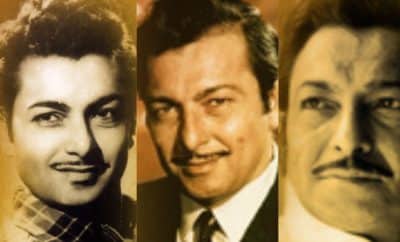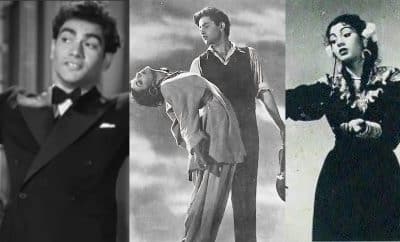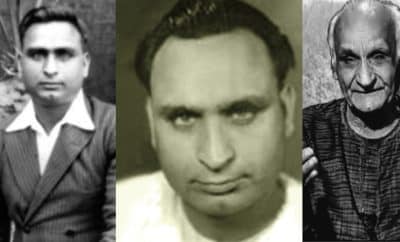Song Sketch
Mountain Beauty – Husn Pahadon Kaa – Ram Teri Ganga Maili
Ganga – the most sacred river in India. It is to India what Nile is to Egypt. A lifeline. It has all the importance – be it geographical, mythological, historical, aesthetic. Even if it so, sadly it happens to be one of most polluted rivers in world. Ironically we refer her as an embodiment of sacredness (Ganga jaisi pavitra). There’s nothing more anthemic for an Indian to take a dip in her expanse. I had read Pandit Jawaharlal Nehru’s thoughts in one of the articles pertaining to Ganga – “The Ganga is the river of India, beloved of her people, round which are intertwined her racial memories, her hopes and fears, her songs of triumph, her victories and her defeats. She has been a symbol of India’s age-long culture and civilization, ever-changing, ever-flowing, and yet ever the same Ganga.”
How true this seems with the film Raj Kapoor made – Ram Teri Ganga Maili. From his very own Jis Desh Mein Ganga Behti Hai (1960) to his last completed film as a director Ram Teri Ganga Maili (1985). Is there a connection between these 2 films, apart from the name, Ganga?
Raj Kapoor had been to Calcutta (now Kolkata) for the filming of the song Mera naam Raju on the banks of Ganga at the Dakshineshwar Temple. He met a sadhu there who told him a story about Sri Ramkrishna Paramhansa and Totapuri, a saint from Rishikesh. The story – Once it happened that Ramkrishna Paramhansa met this saint from Rishikesh named Totapuri. They met at a point where the Ganga river was the filthiest and dirtiest. Hence Totapuri Maharaj taunts Ramkrishna Paramhansa, “Ram, teri Ganga kitni maili hai”. And without getting disturbed with the statement Ramkrishna replies steadily, “Maharaj, it is so natural. As she flows down from Gangotri to Rishikesh, Benaras and then here, she does nothing but washes away the sins of human beings.”
The above story sowed the seeds of Raj Kapoor’s future venture, his last film as a director and the only film as a writer – Ram Teri Ganga Maili. Hence the title of the film does not refer to Lord Rama (Ram) as is the general idea, but it refers to Ramkrishna Paramhansa. What better example do we have as to why Raj Kapoor is called the Showman!!! The title track at the beginning credits by Suresh Wadkar give you an account of this story.
Uttar mein behti hai kaisi nirmal dhara
Purab mein rang badal gaya bani jalti dhara
Ramkrishna ko Totapuri ne taana maara
Ram teri Ganga maili, maili
The story written by Raj Kapoor thus tells us that Ganga is not polluted by just the garbage and the filth thrown in her expanse but also by the human evil she sees through the flow course. It is about the story of Ganga, a girl (Mandakini) as the metaphor for the river Ganga. Her journey which begins from Gangotri, to find her love Naren (Rajiv Kapoor) in Calcutta. She travels via Rishikesh, Benaras and finally Calcutta. On her way she’s exploited, abused, raped and sold!!
Ganga, the blue eyed girl, pure and beautiful. In love with Naren, who is a visitor to the mountains. Her love for him is as pure as herself. They share their love with the heavenly mountains and streams around them.
Husn pahadon kaa O sahiba
Kya kehna ke baaro mahine yahan mausam jaado kaa
Rut ye suhani hai meri jaan, rut ye suhani hai
Ke sardi se darr kaisa sang garm jawani hai
Beginning with a mesmerising flute which indicate the romantic mountain weather while Lata Mangeshkar’s voice echoes through the valleys. Based on Raag Pahadi, it has unmistakable similarities with Himachali folk song often called as Kunju Chanchalo (Will be sharing the link of this folk song at the end of the article).
Khile khile phoolon se bhari bhari waadi
Raat hi raat mein kisne sajaa di
Lagta hai jaise yahan apni ho shaadi
Kya gul bute hai pahadon mein ye kehte hain pardesi to jhoothe hain
Tum pardesi kidhar se aaye
Aate hi mere mann mein samaye
Karu kya haathon se mann nikla jaaye
Chhote chhote jharne hain ke jharnon kaa paani chhuke kuch waade karne hain
Jharne toh behte hain kasam le pahadon ki jo kaayam rehte hain
Haath hai haathon mein ke rasta kat hi gaya
Inn pyar ki baaton mein
Duniya ye gaati hai suno ji
Duniya ye gaati hai
Ke pyaar se rasta toh kya zindagi kat jaati hai
The entire song gives you that typical feel of belonging to the mountains. With enchanting tune and exquisite picturisation, you tend to reach that place instantly. The beauty of the mountains at its best, appealing and innocent!!
https://www.youtube.com/watch?v=1xTz9TA7L2s
Sharing the link of the Pahadi folk tune Kunju Chanchalo which sounds similar to this song.



